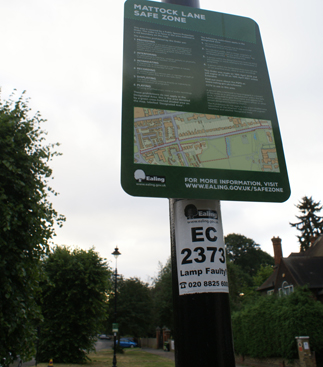The Public Order Bill well on its way through the Houses of Parliament on its way to Royal Assent is billed (pardon the pun, writes Mark Rowe) to tackle ‘protest-related activities’ such as by Just Stop Oil (JSO), and Extinction Rebellion and demonstrators against the Euston to Birmingham rail line HS2. Hence it covers ‘locking on’ (protesters stopping work at a HS2 site, or any site deemed to be causing climate change, by locking themselves into lumps of concrete or against fences or gates) and ‘tunnelling’ (as at Euston Gardens in front of Euston station, in the winter of 2020-21; since fenced off). Less commented on has been amendment NC11 to the Public Order Bill.
Put forward by the Labour MP Stella Creasy, it will create national buffer zones around abortion clinics. MPs in October voted in favour, and section 9 of the Bill will make an offence of ‘interference with access to or provision of abortion services’. It’s been welcomed by those providing abortion advice and services, such as the BPAS, as a resolution to a long-standing controversy (and not only in the UK) whereby pro-life activists hold vigils outside or on the route to an abortion clinic, to pray for the unborn and offer advice (their view); or (going by the PSPO consultation by Birmingham Council for a public space protection order at a Kings Norton clinic earlier this year) upsetting residents and those seeking the services.
Dr Edward Morris, President of the Royal College of Obstetricians and Gynaecologists, said for example: “Abortion is an essential sexual and reproductive health service, and introducing buffer zones will ensure that women accessing care, and healthcare professionals providing care, can do so without enduring harassment or intimidation. Buffer zones will also help to remove the stigma, guilt and shame that anti-choice organisations try to impose on women accessing this essential health service.
“We hope that the House of Lords will join MPs in supporting NC11 to the Public Order Bill to ensure that the privacy and rights of all those who access and provide abortion care are respected.”
Meanwhile, one of the few councils in England that has already created such a ‘buffer zone’ around a clinic, Bournemouth, faces a legal challenge over its PSPO covering an abortion centre. Andrea Williams, chief executive of the Christian Legal Centre, said: “The effect of the PSPO is to criminalise 40 Days’ activities in Bournemouth and to create an area where no discussion of abortion or even prayer relating to abortion, is permitted.
“There is no evidence whatsoever to show that anyone is being harassed outside abortion clinics. The truth is quite the opposite. It is the abortion supporters who intimidate and harass and do not permit any dissenting viewpoint.
“Following the introduction of Pills by Post at home abortions, the offer of help to women outside abortion clinics is one of the few lifelines left to those who feel helpless and coerced into going through with an abortion.
“Buffer zones are an oppressive part of the current culture which force consent and silence dissent. The saddest thing of all is that we are actually talking about human lives.
“We stand with 40 Days for Life as they seek justice in this case. We call on MPs and the government to halt the introduction of repressive and draconian buffer zones across the UK.”
Background
Ealing in west London was the first council to use a PSPO to make a buffer around an abortion clinic, in 2018 (pictured, the PSPO on-street signage). PSPOs came out of the Anti-Social Behaviour, Crime and Policing Act 2014, and more often are made to combat low-level crime or nuisances, above all dog fouling; or littering, on-street drinking or urination, or ‘boy racer’ driving. Only a handful of councils have set up abortion-specific PSPOs; another is in Richmond in west London, besides Kings Norton.
A Home Office ‘consultation’ on the issue in 2017 ended in 2018 with the then Home Secretary Sajid Javid deciding to take no action towards setting buffer zones.
Northern Ireland
The Attorney General for Northern Ireland referred the Abortion Services (Safe Access Zones) (Northern Ireland) Bill to the Supreme Court. Specifically clause 5(2)(a) of the Bill, which makes it a criminal offence “to do an act in a safe access zone with the intent of, or reckless as to whether it has the effect of… influencing a protected person, whether directly or indirectly”. In a December 7 ruling, the Supreme Court unanimously held that the clause is compatible with the human rights of those who seek to express their opposition to the provision of abortion treatment services in Northern Ireland.
Liam Gibson, the Policy and Legal Officer for the anti-abortion Society for the Protection of Unborn Children (SPUC), called it a watershed moment for civil rights in the UK; that is, the ruling covering Northern Ireland may affect Scotland, and the Public Order Bill’s progress. He said: “Freedom of assembly is not only necessary in a democratic society but legal restrictions on peaceful protests undermine democracy itself. This is not only a bad decision, the Supreme Court has set a precedent which has the potential to endanger everyone’s right to freedom of speech and the right to engage in peaceful protest.”
Scotland
In Scotland, the Scottish Green MSP Gillian Mackay launched a member’s bill that would create buffer zones around abortion clinics; consultation ended in August. The Holyrood government formed a ‘Ministerial-led Working Group‘ on safe access zones around healthcare facilities in 2021; which indeed according to its August meeting minutes was awaiting the Supreme Court judgment.










